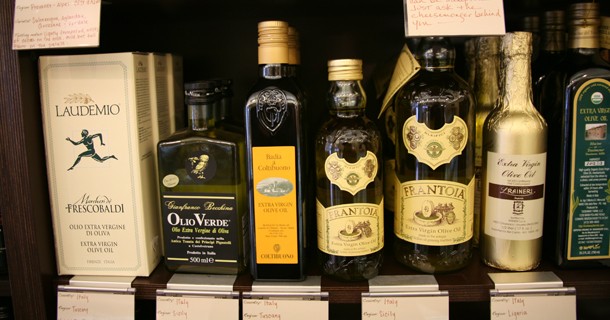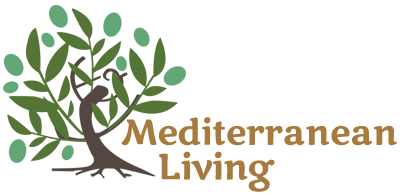
photo by Bill Bradley
In 1948, Ancel Keyes made a fascinating discovery. He was paid by the Rockefeller Foundation to go to Crete to see how the foundation could help the war ravaged island. The idea was to be able to help the people from the island on a number of different levels including nutrition. The assumption was that because they were such a poor and devastated island the people would be in poor health and need help. One of the things the Keye’s researchers looked for were the number of men who had heart disease. They also sent hundreds of student nurses out to all areas of Crete to find out exactly what was eaten on a daily basis. What they found was truly amazing. The researchers could only find one man on the entire island who had had any kind of heart disease in the past 10 years! And when the student nurses came back with their intake journals from families across the island, they found that the people of Crete ate 40% of their calories from fat! How could this be? A high fat diet coupled with extremely low rates of heart disease?
Unlike in our country, where people eat large amounts of saturated fat from animal sources, most of the fat eaten by the people of Crete was from plant sources, mostly nuts, seeds, beans, and the majority extra virgin olive oil. As a matter of fact, they ate a third of their daily calories from olive oil (30% to be exact).
The question is often asked: “How could I eat that much oil and maintain or lose weight?” The answer is fairly simple. If you eat fast food for breakfast, lunch, and dinner and add a half a cup of olive oil to your daily intake then you are definitely going to gain weight. If you are eating a Mediterranean diet full of vegetables, fruits, beans, nuts with small amounts of pasta, wine, and animal products and add an abundance of olive oil to your diet then you are most likely going to lose or maintain your weight.
We definitely don’t recommend switching overnight to having more olive oil, nuts, seeds, and beans to your diet. It should be a gradual change made over a period of weeks instead of days. If you have completely switched to the Mediterranean way of eating and you find yourself gaining weight you may want to cut back on fat, but you might also want to look at other culprits such as eating too much bread and pasta and rice and also the obvious, not getting enough exercise.
Just like with the vegetables, you don’t want to be just drinking olive oil by itself, you want to be using it in your stews, casseroles, salads, dips, and other recipes. There are a few guidelines you should follow though.
Guidelines for Olive Oil
1. Make sure you are getting a real extra virgin olive oil. Tom Mueller, in his book “Extra Virginity, The Sublime and Scandalous World of Extra Virginity”, discovered that over 70 % of extra virgin olive oil sent to the America was not extra virgin at all.
2. It is important that it has a “burn” to it. Studies have shown that high quality, fresh extra virgin olive oil which leaves a peppery sensation in the back of the throat after consumption is an anti-inflammatory that mimics the effect of ibuprofen. The easiest way to test for this important quality is to swallow about a half teaspoon of olive oil and see if you feel a “burn” in the back of your throat. It usually takes 10 to 15 seconds to feel the “burn”. The stronger the sensation, the stronger the healthy effect.
3. Use olive oil both raw and for cooking. You may lose some of the health qualities of olive oil when cooking with it so it is important that you have some raw (as salad dressings and bread dipping for example).
4. Do not cook olive oil at high temperatures. The smoking point of olive oil is lower than some other oils. You can fry with olive oil on a medium heat, but you don’t want to deep fat fry or use olive oil in a wok. You don’t want your oil to ever smoke, because it not only destroys some of the healthy properties, but can actually make it bad for you. If you are sauteing vegetables in olive oil you will get some steam rising. This is different than “smoking”. The more you cook with olive oil the easier it will be for you to tell the difference between steaming and smoking.
5. The fresher the better. Some of the health qualities of a really good extra virgin olive oil such as “the burn” are based on how fresh the oil is. It is hard to know how fresh oil is. You can check the date, but also if you have a good Mediterranean food store in your area that you trust you can ask when the oil was made.
6. Store in a cool, dark place. You don’t want your olive oil to be in the sun as this can degrade some of the nutrients over time. Your olive oil by the stove should be in a dark bottle or tin and not be kept too close to the stove as the heat radiating from the stove can cause a similar damage as that done by the sun.
Making the switch:
1. Spend the time to find a really good extra virgin olive oil that is in your price range.
2. Get rid of “fake” fats such as margarine filled with chemicals and hydrogenated fats. Use butter occasionally instead of margarine.
3. Buy a high quality safflower, peanut, canola, or sunflower oil for when you are frying at a high heat (occasional use).
4. Begin to substitute olive oil for butter and margarine.
5. Make an olive oil/butter blend for times when you want a buttery taste.
6. Try baking with olive oil.
7. Use olive oil raw and cooked.
